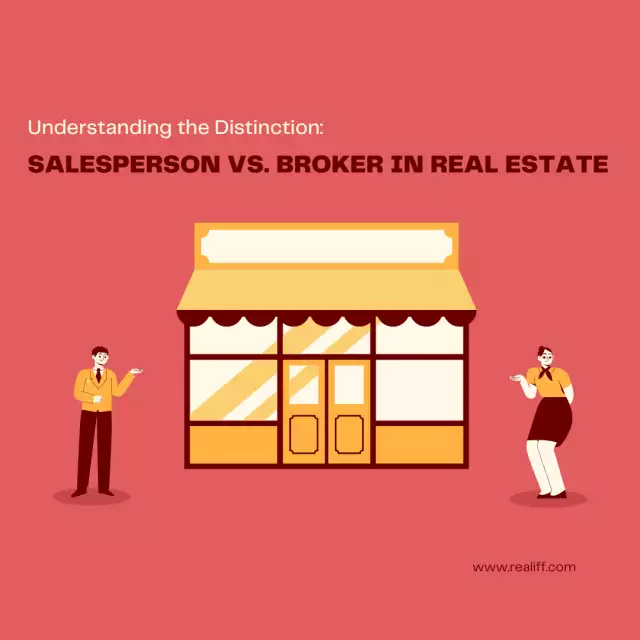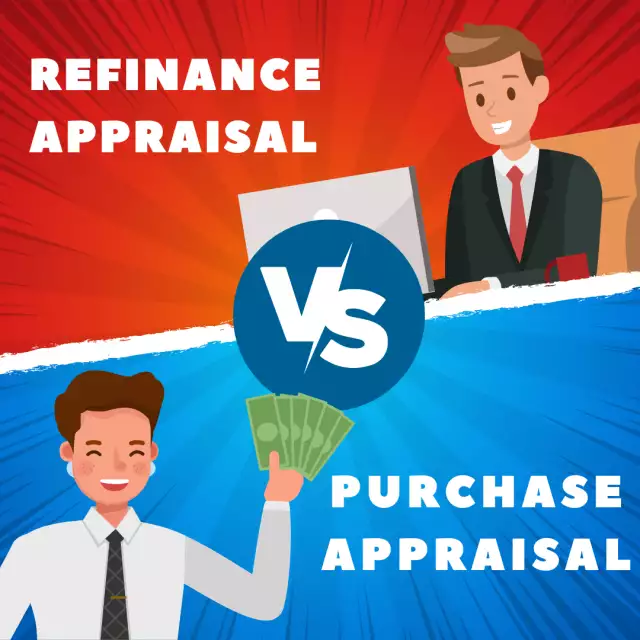Understanding the Distinction: Salesperson vs. Broker in Real Estate
Understanding the Distinction: Salesperson vs. Broker in Real Estate
In the realm of real estate, two primary roles stand out: the salesperson and the broker. While both contribute to facilitating property transactions, there are essential differences between these roles that are worth exploring. In this blog post, we will delve into the contrasting responsibilities, qualifications, and legal aspects associated with being a salesperson versus a broker in the real estate industry.
The salesperson in Real Estate
A salesperson, also known as a real estate agent, acts as an intermediary between buyers and sellers in property transactions. Their main responsibilities include marketing properties, representing clients during negotiations, arranging property showings, and assisting with paperwork. Salespersons work under the supervision and sponsorship of a licensed real estate broker.
To become a salesperson, individuals must complete a specific number of pre-licensing education hours, pass a state licensing exam, and obtain a real estate license. Continuing education is often required to maintain their license and stay updated with industry regulations.
Salespersons are authorized to engage in real estate activities within the limits set by their supervising broker. They are not allowed to operate independently or directly represent clients without the involvement of a licensed broker.
Salespersons typically earn a commission based on the sale price or lease value of a property. The commission is shared between the listing agent (seller's agent) and the buyer's agent. The exact commission split may vary based on agreements and local market practices.
Broker in Real Estate
A real estate brokerholds a higher level of responsibility and expertise compared to a salesperson. Brokers are authorized to run their own real estate firms, employing salespersons and operating independently. They often have additional qualifications and experience, providing guidance and oversight to salespersons under their supervision.
To become a broker, individuals undergo more extensive education and experience requirements compared to salespersons. They must complete additional coursework, accumulate a specific number of real estate transactions, and pass a broker licensing exam. State regulations vary, so it's essential to research the specific requirements in your jurisdiction.
Unlike salespersons, brokers have the authority to operate their own real estate brokerage and may hire salespersons as employees or independent contractors. They can directly represent clients in negotiations and transactions.
Brokers have increased legal obligations due to their supervisory role. They are accountable for the actions of their salespersons and must ensure compliance with real estate laws, ethical standards, and transactional procedures. Brokers are also responsible for maintaining trust accounts for handling client funds.
Conclusion
While both salespersons and brokers play vital roles in the real estate industry, the distinction between the two lies in their qualifications, responsibilities, and legal authority. Salespersons work under the sponsorship of a broker, focusing on facilitating transactions and representing clients. Brokers, on the other hand, have a higher level of expertise, can operate independently, and carry additional legal obligations. Understanding these differences will help both professionals and consumers navigate the real estate landscape more effectively.
In summary, salespersons and brokers each have their own set of responsibilities and qualifications in the real estate industry. Whether you're considering a career in real estate or seeking professional assistance in property transactions, it's crucial to be aware of the distinction between these roles. Salespersons excel at connecting buyers and sellers, while brokers offer higher levels of expertise and the ability to operate independently. By understanding these differences, you can make informed decisions and leverage the expertise of the professionals who best suit your real estate needs.








